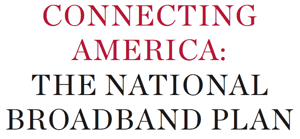NBP - Spectrum Issues
First, at the risk of saying the obvious, we now have a rather detailed statement of strategy for spectrum - something the FCC has not had for a long time. I have previously written how other countries such as Japan and UK had such strategies and how the public availability of such information improves transparency and stimulates R&D. So whether the plan is perfect, good, or even bad, just knowing about current thinking is a great improvement over the past.
On the eve of the report’s release, the New York Times commented how the previous commission was obsessed with broadcast indecency while the current one is focusing on broadband issues. There is some truth to this. But this also points out a fundamental management problem in the FCC structure: the FCC focuses “from crisis to crisis” and the many parts of the FCC can not function in parallel while the 8th Floor is distracted by one megaproblem. Thus when the crisis of the day was indecency then spectrum policy was given little attention and now when the crisis is broadband - admittedly a broad topic - other issues get scant attention. I think FCC should look at how the UK’s Ofcom is organized and observe how this problem is not as severe in their arrangement where the board at the top acts like a corporate board overseeing top managers, not like a group of micromanagers afraid to delegate authority and who fundamentally limit overall productivity of the agency.
To me, the most exciting part of the plan was the public safety issue:
Create a Nationwide Interoperable Public Safety Wireless Broadband Communications Network.
Broadband technologies will give first responders new tools to save American lives. The nation needs a nationwide public safety broadband wireless network that allows first responders nationwide to communicate with one another at all times and without delay. A three-pronged approach will allow the speedy deployment, operation, and continued evolution of such a network. The three prongs are:
1. An administrative system to ensure that public safety users of broadband spectrum have the capacity and service they require for their network; they also should be able to leverage commercial technologies to take advantage of the vast number of applications and devices that are being developed for commercial wireless broadband networks.
2. An emergency response interoperability center to ensure that first responders nationwide can communicate with one another via public safety wireless broadband communications.
3. A grant program to help fund the construction, operation and evolution of the public safety broadband network to ensure resiliency and ubiquitous coverage.

Another great recommendation is
RECOMMENDATION 5.6:
Congress should consider granting authority to the FCC to impose spectrum fees on license holders and to NTIA to impose spectrum fees on users of government spectrum.
One interesting point is that this addresses Federal Government spectrum at all! In the draft Spectrum Policy Task Force report there was one point that just suggested NTIA might consider one new policy and the NTIA and IRAC staff were so incensed that they got the language deleted from the report. Clearly NTIA and FCC are worked together better now and thinking about the public interest, not just the near term convenience of the IRAC membership. There is even this example from the UK:

The UK has been in a leader in both creating a nationwide interoperable public safety systems and in creating incentives for government spectrum users to trade off efficient technology for less spectrum use.




![Validate my RSS feed [Valid RSS]](valid-rss-rogers.png)

